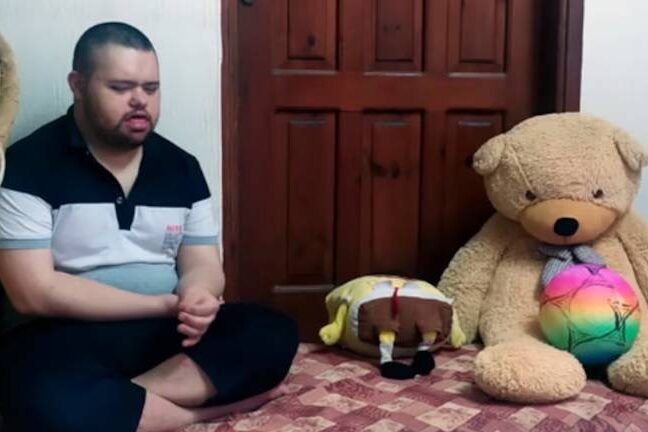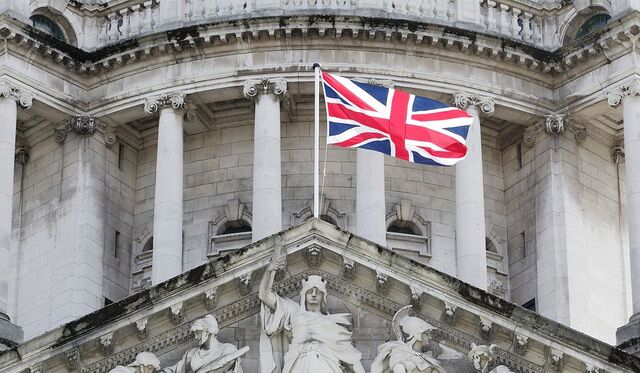THE story on the BBC News website on July 16 last year was headlined ‘The lonely death of Gaza man with Down’s syndrome’. The bland and determinedly neutral 10-word sentence is gone now, replaced with another by the BBC after a torrent of objections, most from readers familiar with the story who rightly felt that the headline came nowhere near to reflecting the dark and horrific truth of the killing that the headlined referenced. But other objections came from people shocked to the point of disbelief that a news outlet which misses no opportunity to trumpet its trustworthiness would suck the life – and death – out of a story with a thoroughness that would make an IDF spokesperson gasp in admiration.
The importance of headlines in the digital age is hard to overestimate, but it is an importance that generally goes unappreciated by the public. Global news giants, however, are acutely aware of the technical centrality of headlines to the operation of algorithms and the driving of engagement not only in relation to breaking stories, but in relation to the future compilation of reports and statistical analyses. ‘The lonely death of Gaza man with Down’s syndrome’ is a headline that not only omits any reference to the perpetrator – in its claim that the victim died a ‘lonely death’ it tells us, and it tells the future, that there actually was no perpetrator.
But there were perpetrators, and the crime that they committed will claim a shameful place in the annals of conflict every bit as surely as that BBC headline will go down in the annals of abject journalistic failure. More worrying for the BBC, however, is the fact that the headline was the spark for an extraordinary report in the US media outlet Drop News on the corporation’s coverage of Gaza by the Guardian columnist Owen Jones. Mr Jones spoke to 13 current BBC journalists who revealed extraordinary details of the extent to which their employer goes to spin Gaza stories to the liking of the IDF and its political bosses.
What actually happened is the Israeli army set a dog on a Palestinian man with Down’s Syndrome, which savaged him.
— Owen Jones (@owenjonesjourno) July 16, 2024
They then left him to die of his injuries, and his decomposed body was later discovered by his relatives.
This headline is a disgusting travesty. https://t.co/HRWoUBgPiX
The grim details that the headline so comprehensively ignored are so obscene, so chillingly inhumane, that it is no surprise that Mr Jones was moved to act. The following details are taken from a number of sources, including, with a savage twist of irony, the report underneath the BBC headline…
Mohammad Bhar was a 24-year-old Gazan man living with Down syndrome and autism. The life of comfortable routine that he enjoyed – and required – prior to the Israeli invasion of Gaza had been disrupted not once, but six times, as the IDF drove Palestinians from one deadly ‘safe zone’ to the next. Mohammed was in another new and strange place on July 3 last year, this time in the Shuja’iyya district of Gaza City. His mobility severely restricted by obesity, he could do nothing for himself. His mother fed him and changed his nappies and he spent the bulk of his time in a battered easy chair terrified by the sound of exploding Israeli shells in the nearby streets and attack jets overhead.
It's not known how many soldiers were part of the IDF unit that raided the place Mohammad and his family were sheltering in that day. What is known is that they had with them an attack dog which set upon Mohammad, mauling him about the chest, arm and hand while he struggled to find the words to beg the dog to stop and his mother pleaded with the soldiers to pull the dog off him.
When the soldiers eventually complied, they took Mohammad into a back room away from the dog – and away from his family. They promised his mother that a military doctor was on his way to treat Mohammad’s bite wounds, later ejecting the family from the apartment, arresting two of his brothers and leaving the building. The remaining members of the family set up their seventh place of refuge in the rubble of a destroyed building nearby.
The Palestine Red Cross were contacted by the family and made several attempts to contact the IDF to establish Mohammad's condition and whereabouts. The IDF refused to cooperate. A week later the family returned to the site of the dog attack and found Mohammad lying dead in a pool of blood in the room where the IDF had abandoned him. The remains of a military field dressing hung from his arm, his body was badly decomposed, with maggots on his face and on his bite wounds. After applying rudimentary first aid to his injuries, the Israeli soldiers had closed the door to the room he was in, exited the building and left him to die.
It was with every word of this information at their disposal that the BBC headlined their report on the killing of Mohammad Bhar ‘The lonely death of Gaza man with Down’s syndrome’. Every aspect of the story that made it remarkable and horrific was left out of the headline when the very purpose of headlines is to précis the most salient aspects of a story in order to encourage engagement. This was a headline more likely to make a person keep scrolling than to click and read. According to the BBC headline on July 16, the death of Mohammad Bhar was a random tragedy, a heartbreaking human story, a case of cruel cosmic chance with neither hero nor villain. ‘The lonely death of Gaza man with Down’s syndrome’. Empty. Passive. A shrug. A puff of the cheeks.
But of course Mohammad’s ‘lonely death’ was only lonely because he was dumped gravely wounded in a room by his killers to spend hours or days – no-one knows how long he survived – bleeding, in pain and untended before succumbing to his wounds. No-one knows the mental and physical suffering he endured after the dog stopped biting and barking, after his family were evicted and after the soldiers fled. And he was not alone when he suffered the injuries that killed him – far from it; there were at least two dozen IDF troops near and around him, watching the attack while pointing their weapons at him and his family.
What did die a lonely death was that BBC headline. Such was the level of disgust and anger that it was later changed to ‘Gaza man with Down’s syndrome attacked by IDF dog and left to die, mother tells BBC’. And it died a lonely death because no other headlines were changed. The countless other headlines whose studied coyness about attribution still stand as testament to the BBC’s determination to absolve the IDF from blame when at all humanly – or inhumanly – possible.








